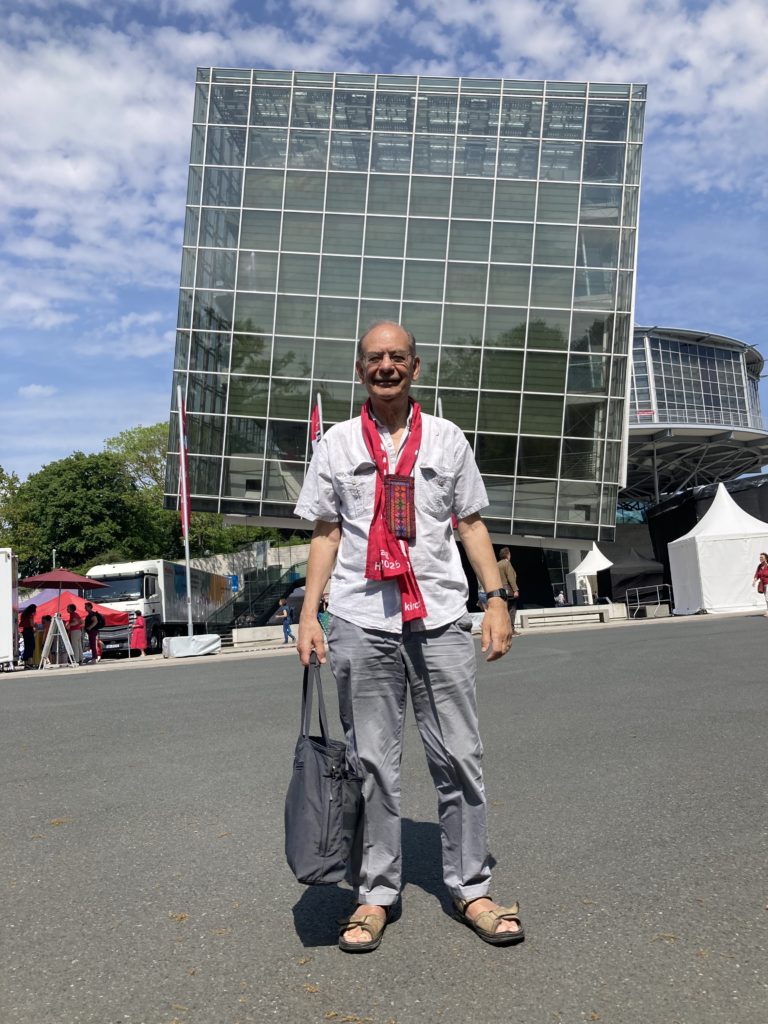
HANNOVER KIRCHENTAG 2025
Mutig, stark, beherzt
This was the motto of the 39th Protestant German Kirchentag meeting in Hanover in April/May. Courageous, strong, resolute, (quoting 1 Corinthians 16.13). Over 100,000 people met over five days for an exploration of faith, justice and hope. And I was there!
What does Kirchentag mean?
It literally means ‘church day’, which is confusing because it always starts on Wednesday evening and ends at Sunday lunchtime. ‘Tag is also used in ‘Reichstag’ or ‘German Parliament’, so it is used to mean congress or convention, but that is a bit dry for the actual event. I like to translate it as ‘Church Festival’, except that its focus goes way beyond the church. The nearest we get to it in Britain is the Greenbelt Festival, where 15,000 celebrate and debate in a field near Kettering in August. Basically, ‘Kirchentag’ is untranslatable.
What is the Kirchentag?
The Kirchentag started in 1949 in Hanover as a lay movement to ‘draw together Protestant Christians in Germany in order to strengthen them in their faith, to prepare them for responsibility in their churches; to encourage them in witnessing in the world; and to have solidarity with those in the world-wide community of Christendom.’ At first it met every year, then after 1952 biennially. In 2004 there was the first ecumenical Kirchentag between Protestants and Catholics.
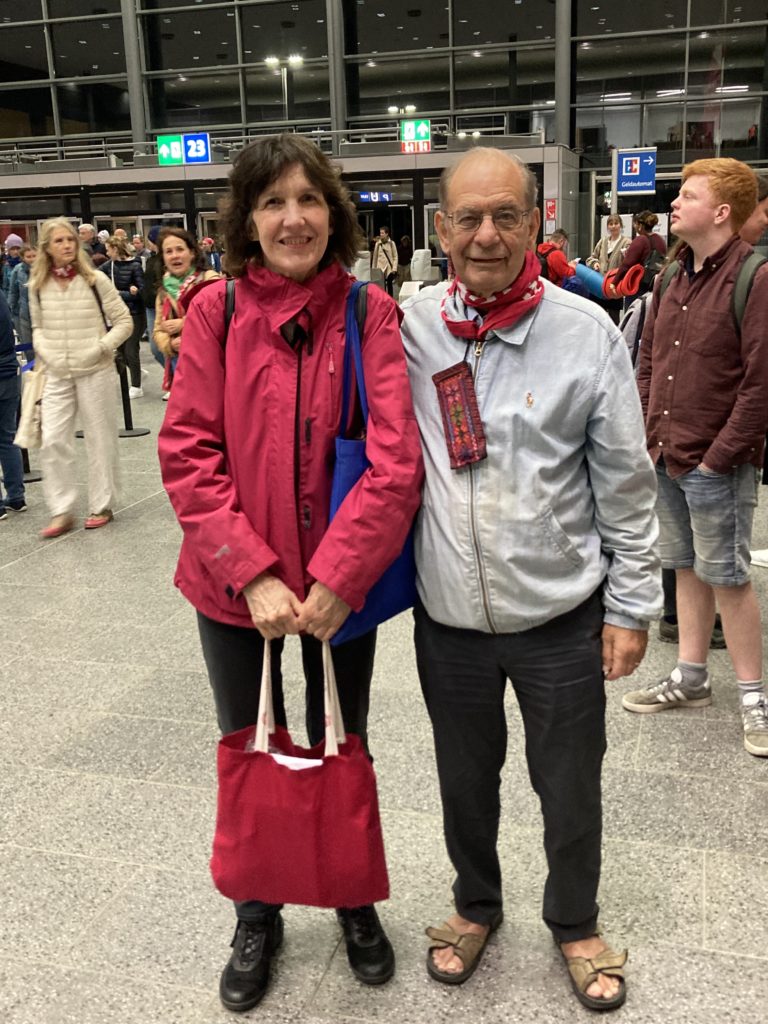
Kirchentags and me
I first went to a Kirchentag in 1993 in Munich, as I thought it was a good opportunity to see my father’s home city. At the opening service I heard a woman singing a hymn in English behind me. I introduced myself and Waltraud and I have been friends ever since. The ‘Market of Possibilities’ impressed me a lot. I met a Lutheran from Vladivostok, went round the corner and met an Orthodox priest from Turkey. The event I attended on Saturday evening (It was one of several) was a celebration of dance, poetry and sculpture with the Dalai Lama as a visiting speaker. One of the things he said was “Anger is sometimes useful. Hatred never is.”
Music has provided some of my most memorable moments. In Stuttgart, sitting on the grass in the sunshine, I heard/saw Duke Ellington’s Concert of Sacred Music. Phenomenal! My last event at Frankfurt was listening to Bach’s Magnificat re-imagined for sixteen saxophones. In Nuremberg I heard Mendelssohn’s amazing ‘Lobgesang’, ‘Song of Praise’.
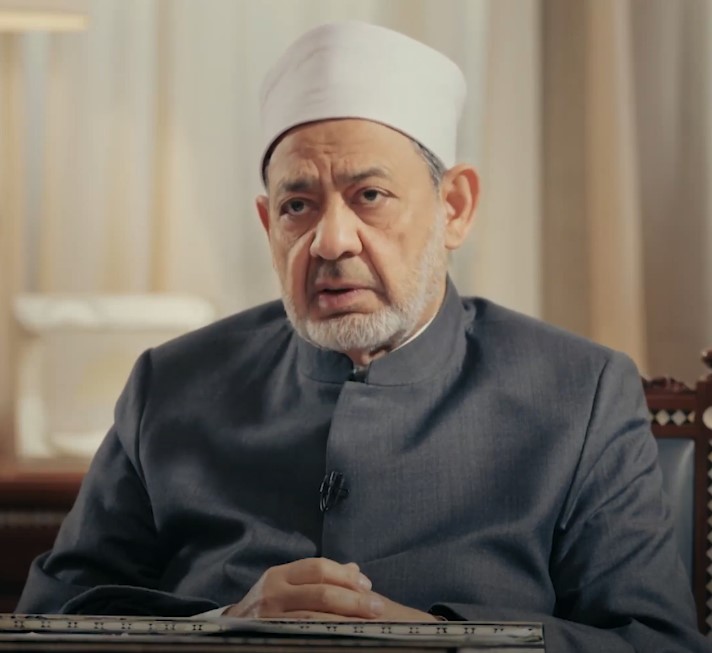
In 2017 I had the astonishing opportunity of hearing the Grand Imam of the Al Azhar University, Cairo, the most senior imam in the world. The programme said there would be simultaneous translation into German and English, but the English translation diid not happen. However, it was so difficult to translate from Arabic to German that the German translator was very slow and I could understand it! The Imam said that, growing up in Luxor with its ancient temples, he knew that people worshipped God before the coming of Islam. He had Christians came and help with some of the teaching. At the end we stood in silence for a minute to remember some Christians who had been murdered by Islamic extremists the day before. No wonder he needed strong security.
Hanover/Hannover
Although the Kirchentag starts on Wednesday, I always travel by train on Tuesday. It gives me time to orientate myself and see some sights on Wednesday. Hanover suffered very severely from the allied bombing raids, though some of the old town remained. I found that the room I booked was in the middle of the city and ideally placed to get to the main Kirchentag sites, particularly the Opera Platz and the U-Bahn.
New Church Ideas
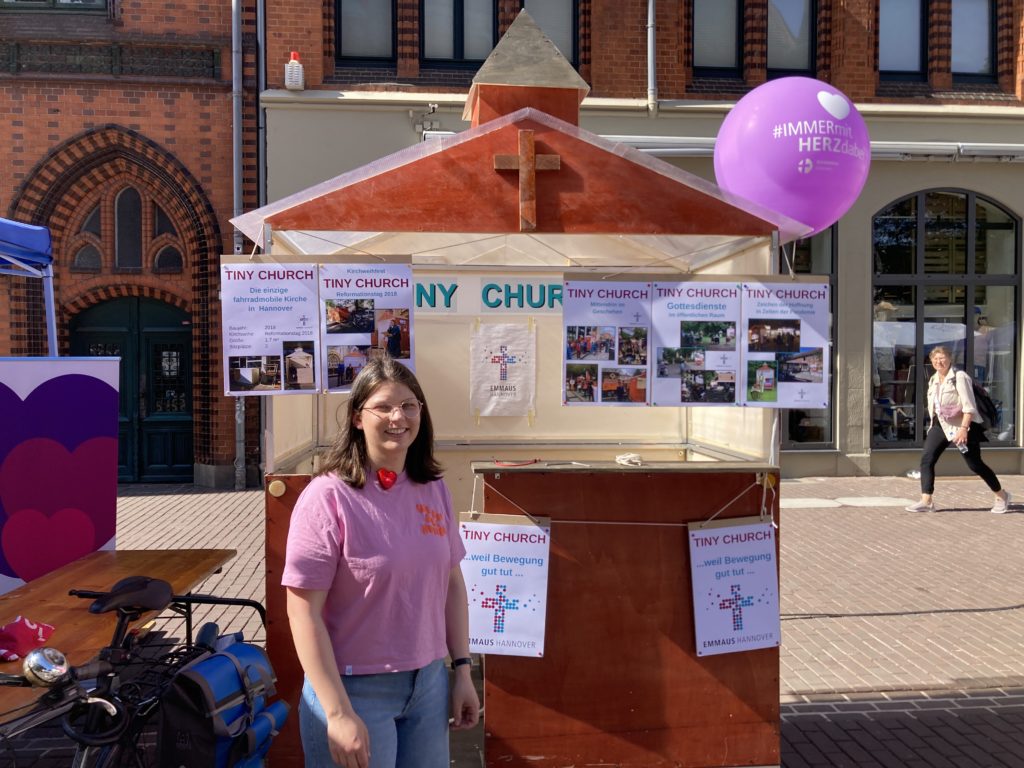
On Wednesday there was an ‘Evening of Meetings’, with small pop-up tents offering food, music and ideas. Outside the Marktkirche were four stands with creative ideas for doing church. These were:
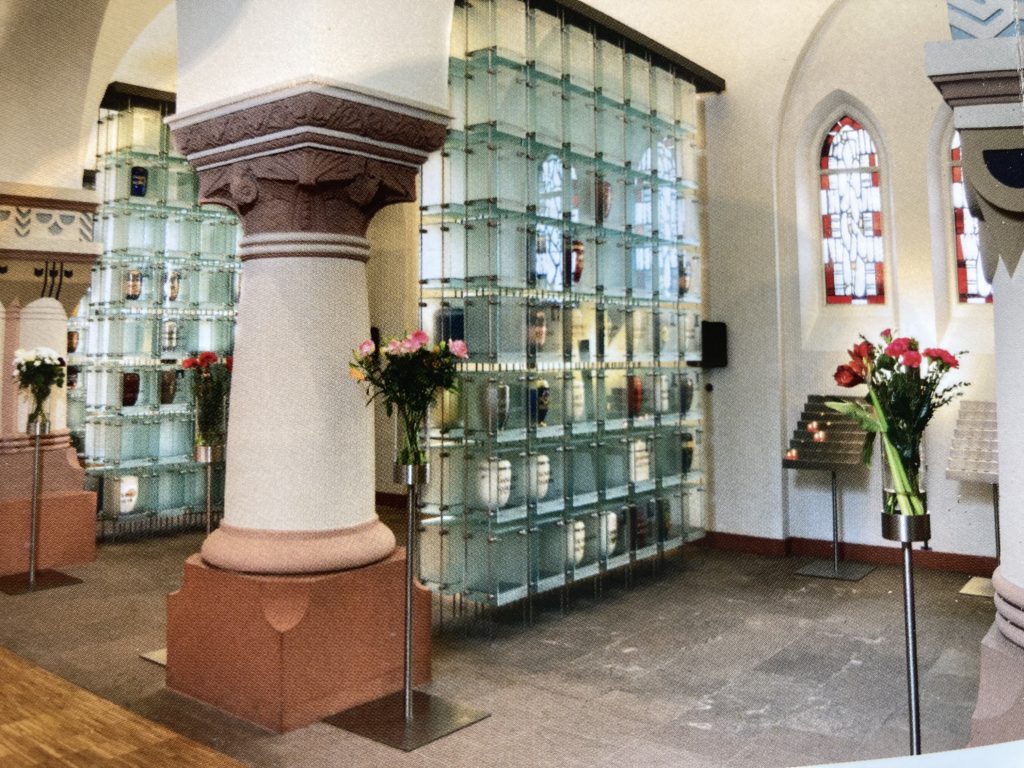
- A church for the unchurched: a Tiny Church which they moved around on the back of a bicycle;
- A church for the thirsty: a mobile alcohol-free cocktail bar;
- A church for the stressed: a movable bed;
- And a church for the dead: a disused Roman Catholic church re-purposed for memory and meditation, with urns containing loved ones’ ashes in see-through plastic cases, with weekly masses and concerts. The photo on the right shows the ‘columbarium’.
- A church for the thirsty: a mobile alcohol-free cocktail bar;
A Bible Study
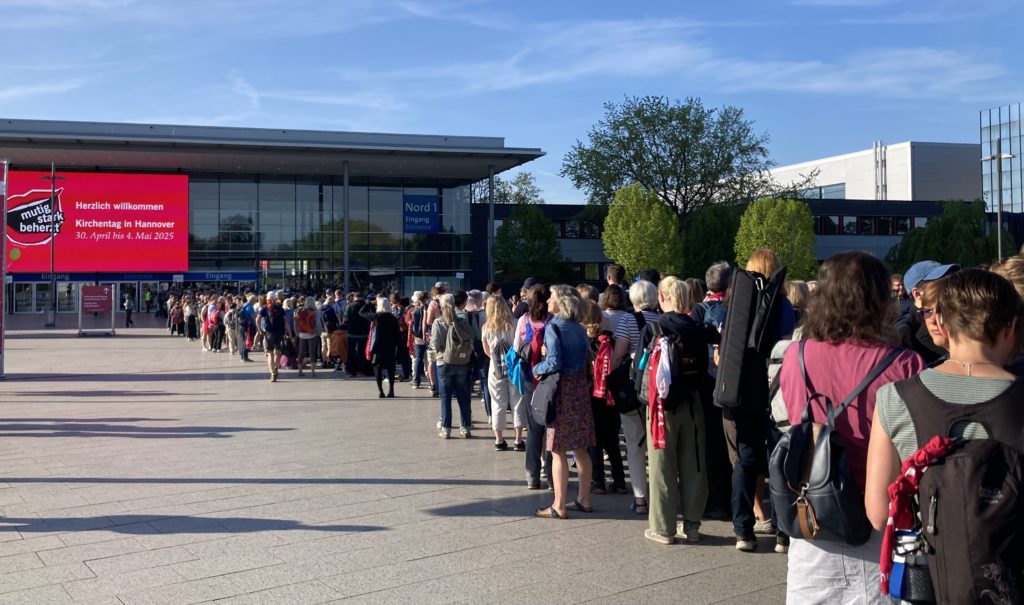
At 9.30 am there are a whole series of Bible studies to start the day. I got up quite early and got to the Messe, or Exhibition Grounds. There was a already an enormous queue to get in at 8.20. In Nuremberg one ‘Bibelarbeit’ (Bible work) had been by Steinmeier, the German President. This year I got to hear Angela Merkel. The text for all the Bible studies was Mark 7.24-30, the encounter between Jesus and the Syro-Phoenician woman. She asked Jesus to deliver her daughter from an unclean spirit and he at first refused. But she did not give up. She had the courage to stand her ground and persuade Jesus to help her.
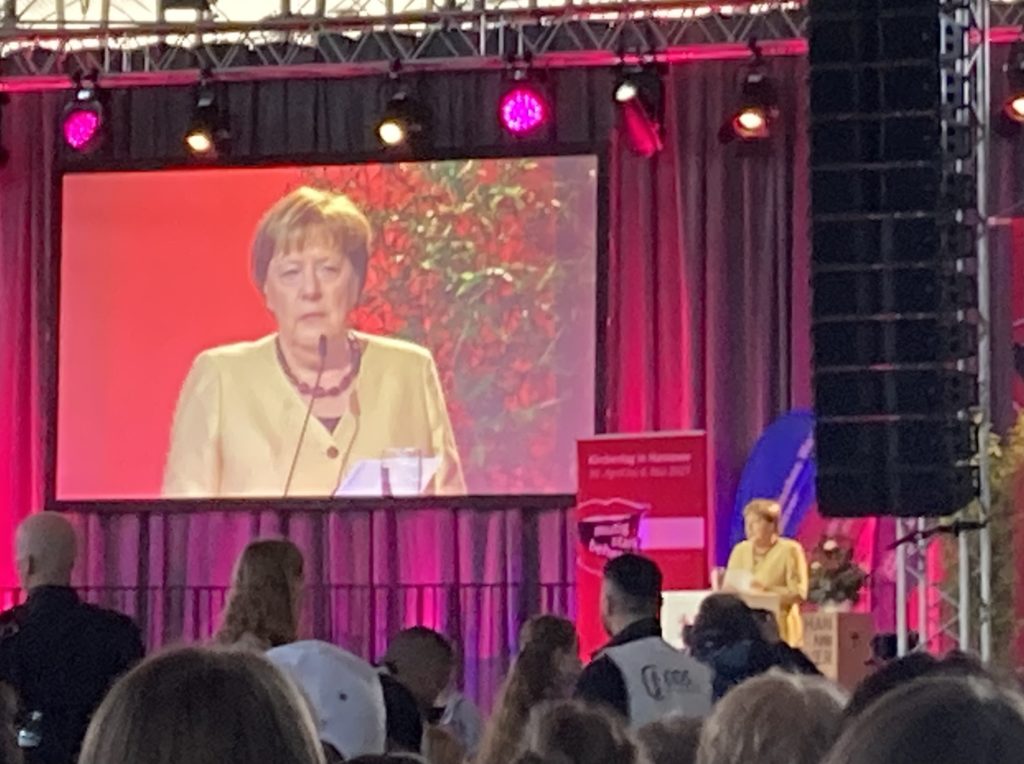
- Angela Merkel said that her faith gave her the courage to confront all the difficulties and challenges she faced as Chancellor. You form a new government with an agreement with your coalition partners, and suddenly in a few days or a year, you are confronted with a totally new situation, like the 2007 financial crisis when they had to bail out the banks.
- All through her time in politics, the challenge of climate change has been central to her thinking.
- She was responsible for hosting, in 1995, the first United Nations ‘Conference of the parties (COP) on climate change, with 170 countries and 160 NGOs represented.
- She hosted the 2017 G20 summit in Hamburg. Beforehand, she visited the Pope, who gave her this advice: “Bend, bend, bend, but stop before you break.” She found that very helpful.
- There was so much disagreement between the developed and developing countries that she could not see how a unanimous communique could be issued, especially after Trump had withdrawn from the Paris Agreement. She consulted an Indian colleague, who advised that the developed and developing countries be put in two separate rooms to draft their own communique, with negotiators going between them until an agreed communique had been achieved. And, against all the odds, it was.
- When the Syrian refugee crisis broke, and thousands of refugees came to the borders, it was her faith which enabled her to say “Wir schaffen das.” (We will achieve this). And they did, with people of good will all working together.
Struggle over words
I went straight on to a discussion about current attitudes to Israel. The German ambassador to Israel, speaking from Tel Aviv, spoke the party line, including advocating the two-state solution. This was severely criticised during the Q&A as totally unrealistic. A big problem was that any criticism of Israel was treated as anti-semitism. This was particularly hard to deal with because of Germany’s terrible history in the 20th century.

Meeting friends
In the evening I met up with Waltraud and her friend Barbara. We had good German food in an inn (Wirthaus) by the Opera Platz. I had Weisswurst – a poached white sausage with sweet mustard. Afterwards I took part in the Evening Blessing with candles in the Opera Platz – beautiful, moving, spiritual. (But I missed out on three wonderful events of classical music. You can’t do everything!)
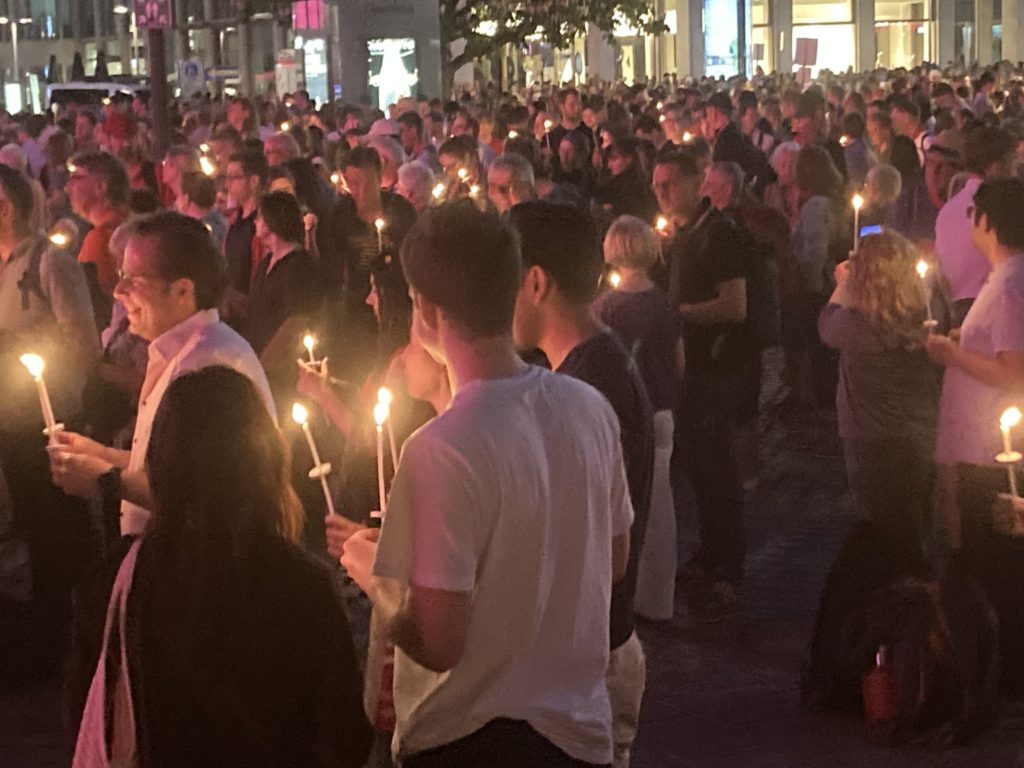
Humans, God and AI
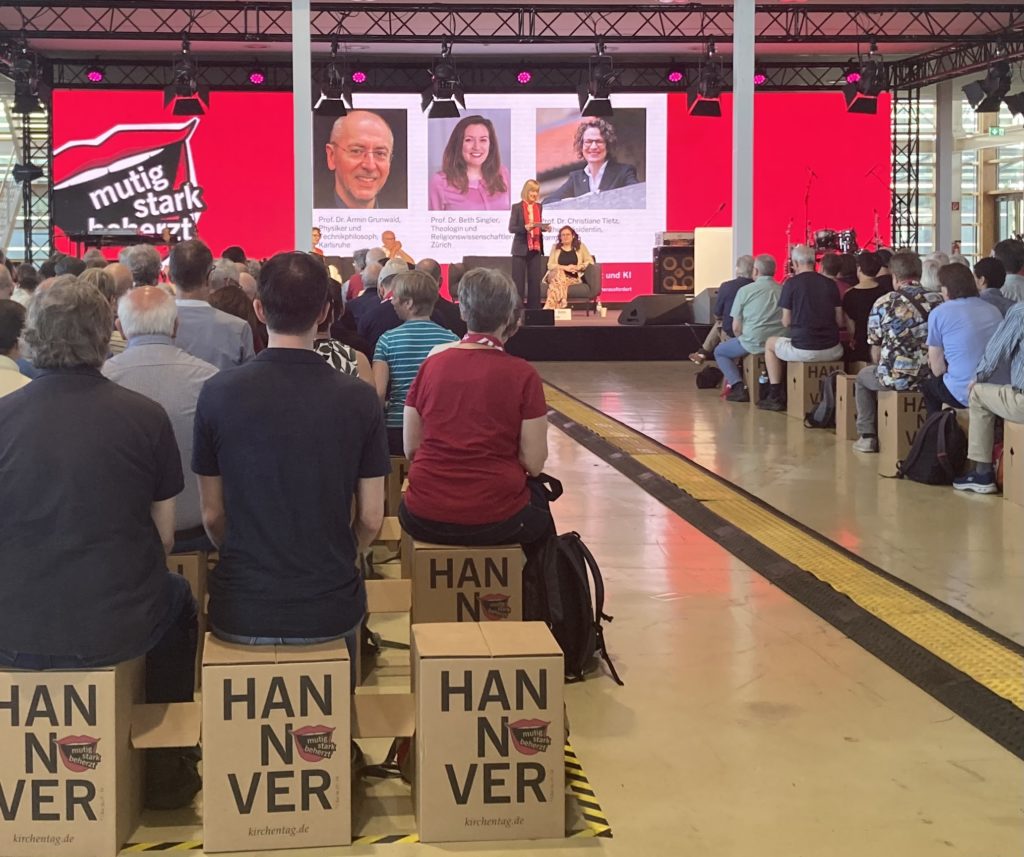
Thursday morning at 11.00. The panel included a physicist and tech philosopher and an English theologian on digital religions; (AI in German is KI – short for Kunstliche Intelligenz). Here are a few scattered thoughts from an incredibly dense and interesting two hours. AI and AGI are different. ‘AI refers to the widely available technology you can use today for a range of tasks in your professional and personal life, from checking the spelling of an email to recommending the next movie you could stream. AGI refers to the theoretical concept of an AI model with such advanced capabilities that it performs equally as well as or better than humans at most tasks.’ (From the website coursera.org, which offers over 10,000 courses!)
We have AI. We have not yet reached AGI.
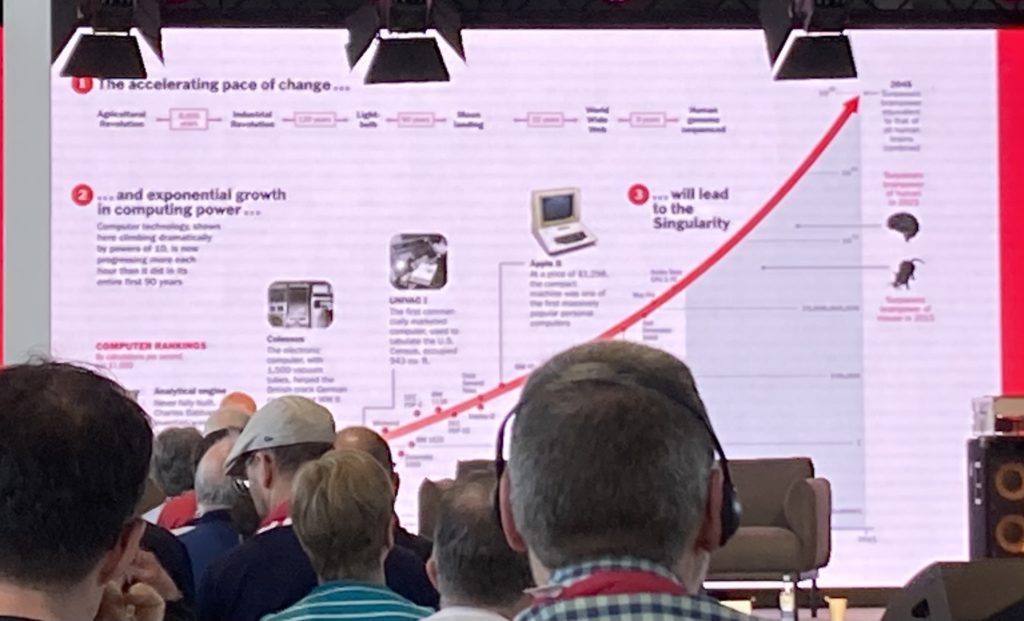
The saying ‘rubbish in, rubbish out’ holds true for AI as it does to all computing. One Chinese AI was asked to translate something, but because there were no images attached, it confessed “I made it up.”
Where will it end? As computing power improves exponentially, so does AI. What happens if, or when, it achieves singularity, i.e. an infinite capacity to improve? A Google engineer commented that today’s AI is the worst we will ever have.
What shapes he relationship between religion and AI? Our aspirations, our hopes and our fears. Would a robot pastor be worse or better than a real person?
The Ancient Greeks defined man as ‘a thinking animal’. If that is true, AI will overtake us. But is that all we are? What about emotion, pleasure, love, and prayer? Can a robot meditate?
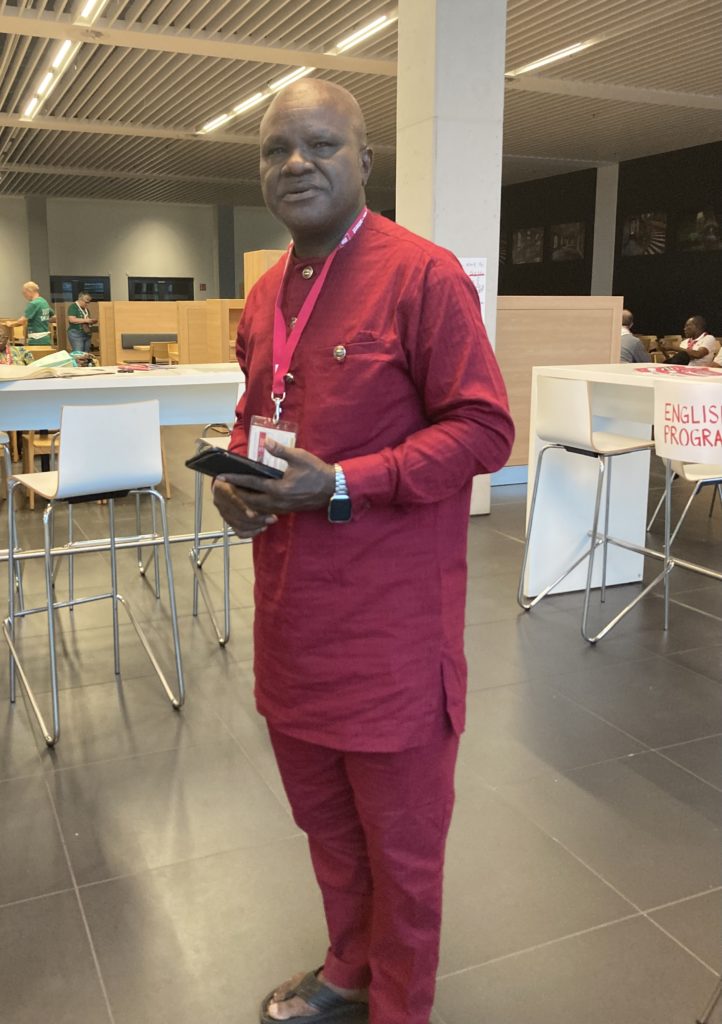
Some normal life
I went back to the International Centre for some free coffee and a brain rest. There I met Pastor Fred, a Nigerian pastor in one of the most rapidly growing churches in the world, the Christian Redeemed Church of God, founded in Lagos in 1952. It is a Pentecostal, Holiness, Evangelical and Apostolic Church with 5 million in Nigeria and 9 million worldwide. Is this the future?
Later Waltraud and I had a really good catch-up session. Then to a fairly standard joint Lutheran-Anglican communion service. Some massed brass in the evening followed by the Evening Blessing.
Saturday morning
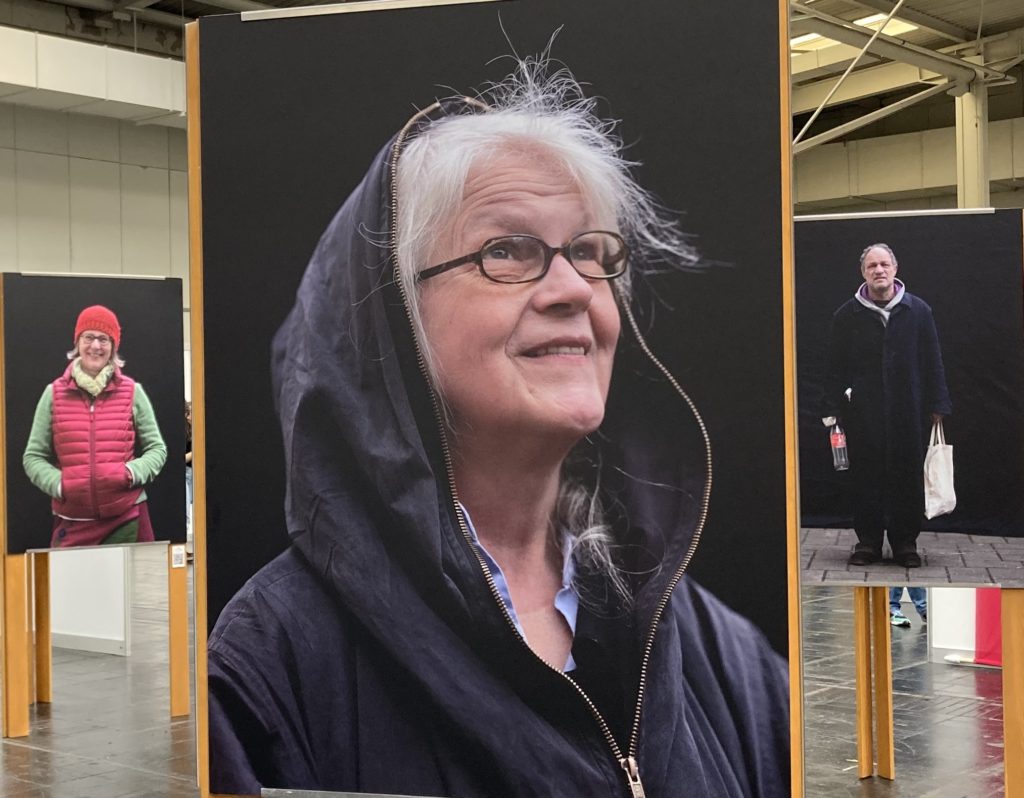
Up early to hear the Bibelarbeit by the very popular Bishop Marian Budde from Washington. At Trump’s second inauguration, she addressed him directly: “In the name of our God, I ask you to have mercy on the people in our country who are scared now.” But her Bible study, based on Matthew’s account of the resurrection in Matthew 28 was purely devotional, reflecting on the women’s ‘courage to set out’ to Jesus’ tomb, and how we need the same courage. The result will be the same for us as for them, ‘fear and great joy’ (Matthew 28.8)
I then went searching for coffee and lunch, and found a wonderful installation of 25 life-size photos of homeless, marginalised and volunteering people who take over the courtyard of a church in Karlsruhe for a month in January. They show the human dignity and value of every person. Here are a couple.
Then a good vegetarian lunch at the Kirchentag’s own restaurant.
Peace does not come on its own
3.00 to a sobering panel discussion on what we need to do to preserve freedom and security. The panel was
- Janusz Reiter, former Polish ambassador to Germany and USA and now chair for the Centre for International Relations, Warsaw;
- Jurgen-Joachim von Sandrart, Lieutenant-General for German armed forces; earlier Commander-General of NATO Multinational Corps Northeast, based in Stettin, Poland
- Dr Jonathan Kivatsi Kavusa, church leader in Baptist Church in Central Africa, based in Goma, Democratic Republic of Congo
Reiter said strongly that we must either prepare for war or prepare for defeat. The Polish experience had shown that. In the 18th century the government had been pacifist and the result was the dismemberment of the entire country between Prussia, Austria and Russia.
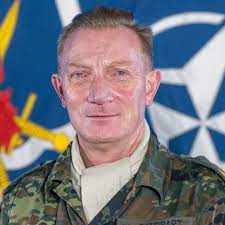
Von Sandrart had joined the German Navy in 1982 because he was a pacifist – he believed that strong armed forces were necessary to maintain the peace. He was not a radical pacifist who believed that all forms of violence were illegitimate. He is currently in charge of munitions supply for the federal government. The change in Russia since 2000 has brought about a real threat of war and we must be prepared to counter it realistically.
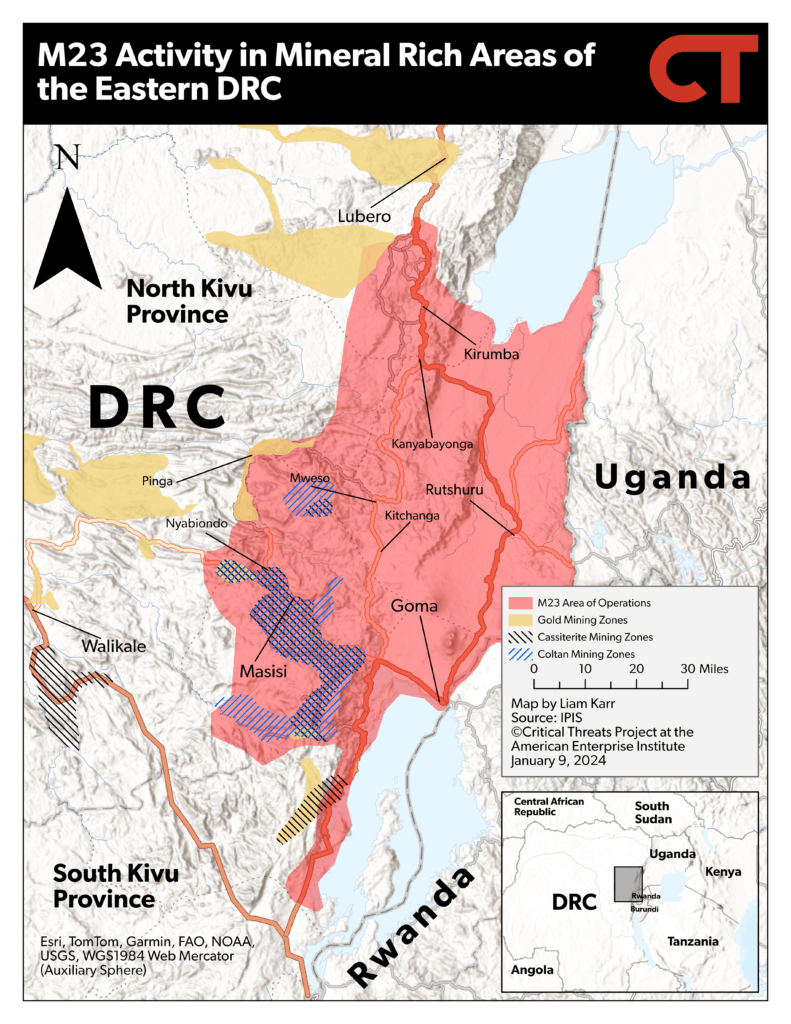
Jonathan Kavusa. There has been civil war going on in the Congo for over thirty years. 12 million have died, often as a result of disease, and 7 million have been displaced. It is an extremely difficult conflict to bring an end because of the number of different interests which are involved, whether tribal (Tutsi – M23 or Hutu – FDLR), national (Congo – (FARDC), International (United Nations Force Intervention Brigade including South Africa), economic, (in 2024 the M23 made $800 million in revenue from mining), and technological (Apple Inc and their need for Coltan for laptops and smartphones).
At the end of January the M23 defeated the Congolese army and seized control of the regional capital of Goma, population 2 million.
He was asked about the Christian attitude in that chaotic situation. He said it is simply representing the needs of the people to those currently in power.
Questions were raised about how to address Jesus’ calling us to non-violence. In fact several advocates of radical pacifism had been invited to join the panel, but all had refused. That’s a shame.
Evening Music
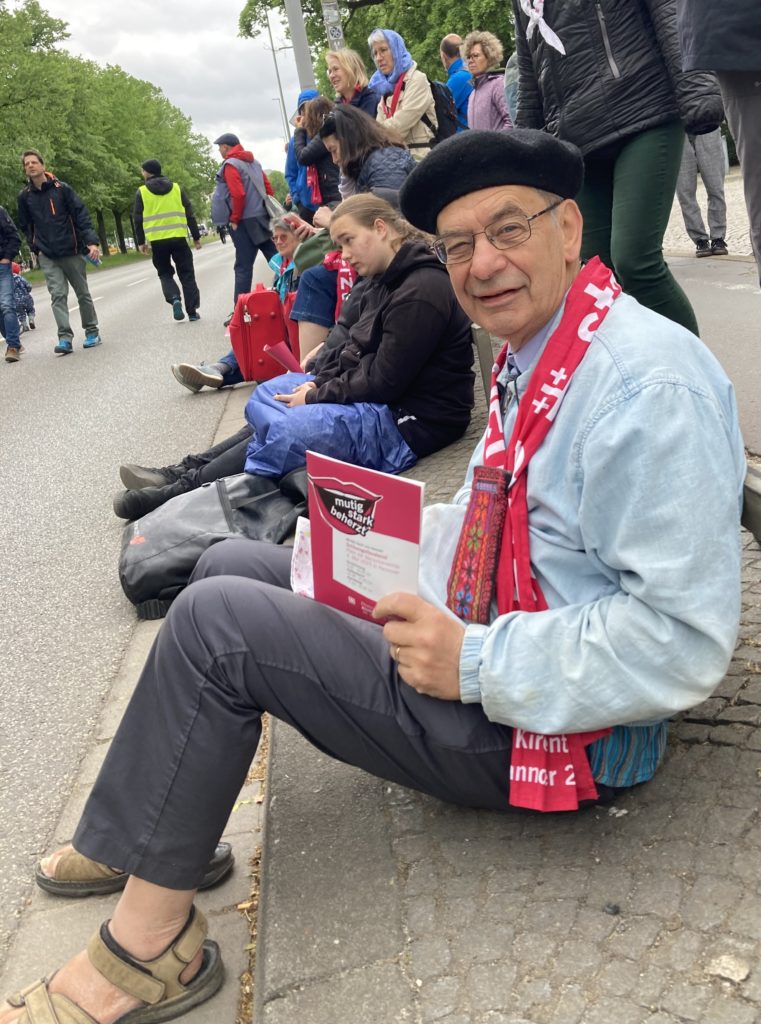
I tried a small a cappella group from Sweden in the Opera Platz but did not stay. (The weather had turned chilly). So I went back to the Messe (Exhibition Grounds), walked past a hall with Taizé worship, and heard a mix of baroque music and jazz with Nils Landgren and the Hanover Boys Choir. And ended the day with the Evening Blessing outside with candles.
Closing Service
There were thousands there! I sat at the fringe but the giant screens kept us all involved. At the end I moved forward to join a small group and received half a communion wafer. It was very meaningful. I felt I really was part of the Body of Christ.
Then home via an overnight stay in Brussels because Deutsche Bahn had reorganised the train times!
Will I do it again? Absolutely!
0 Comments